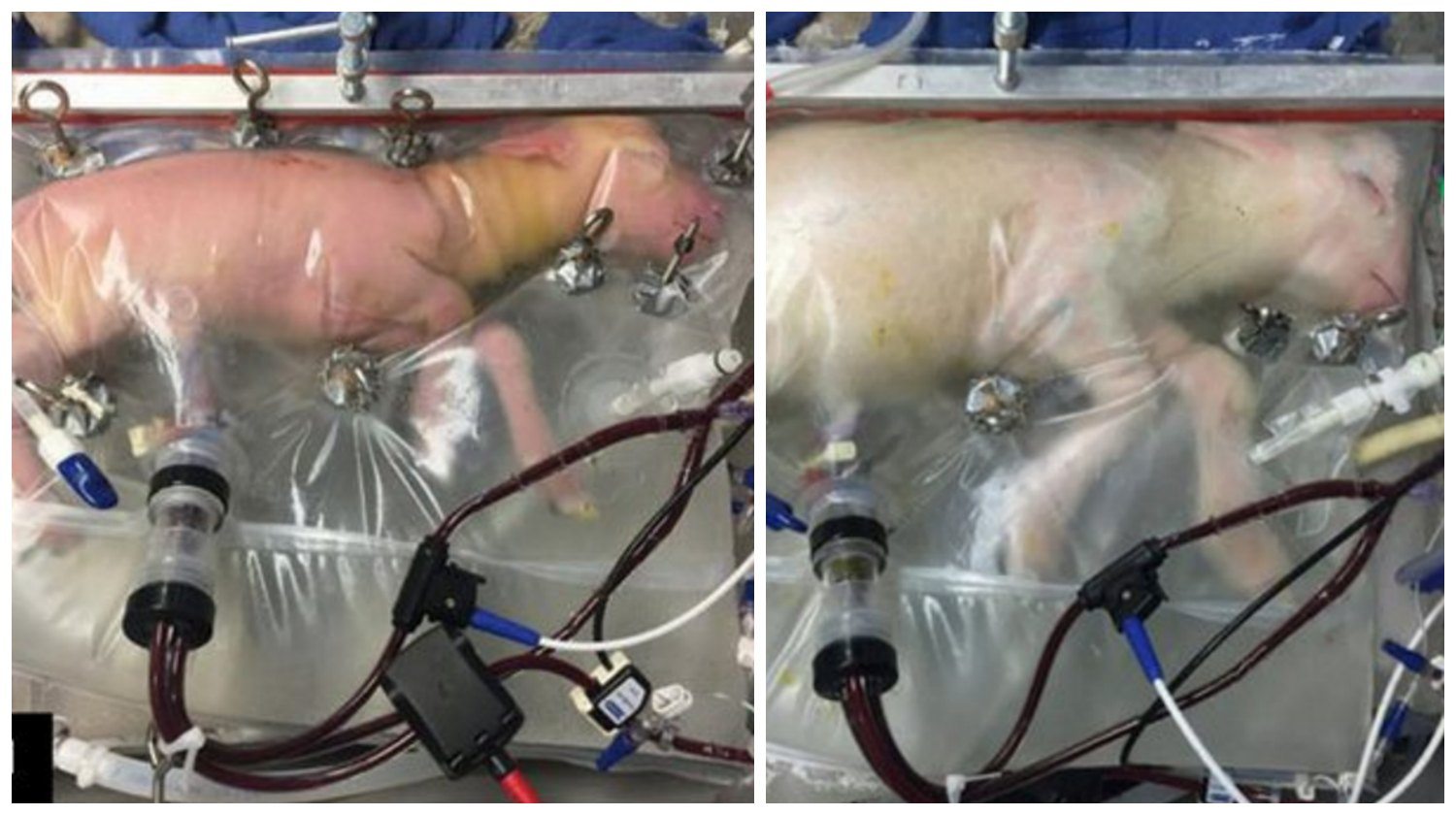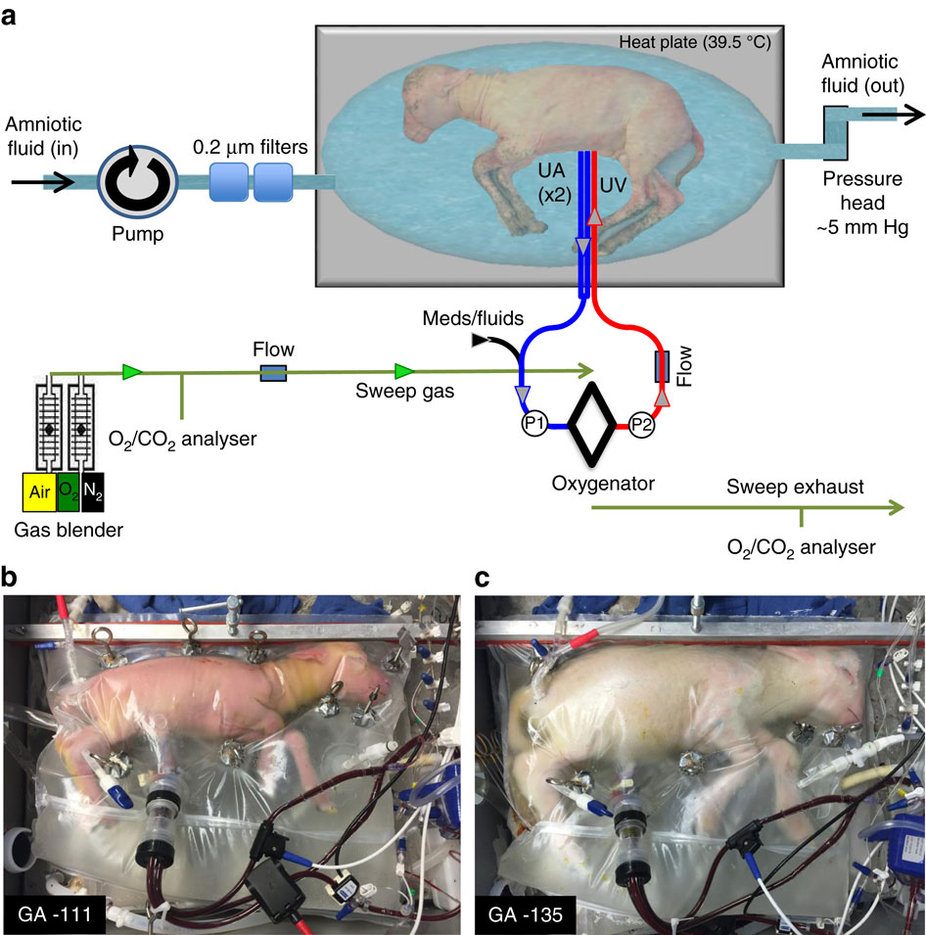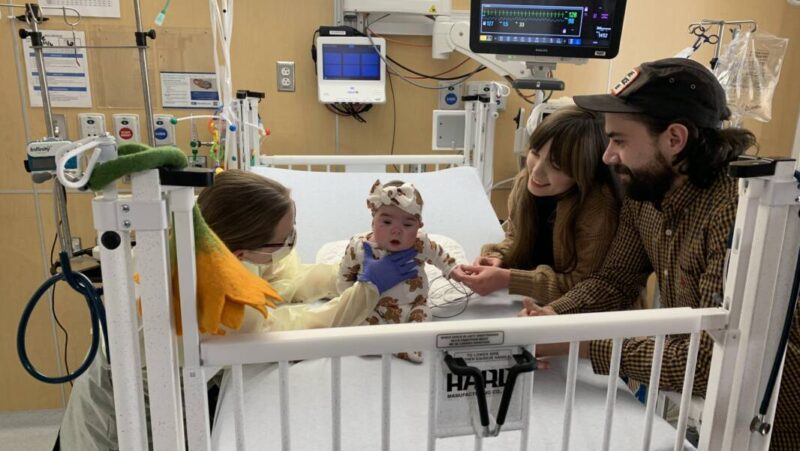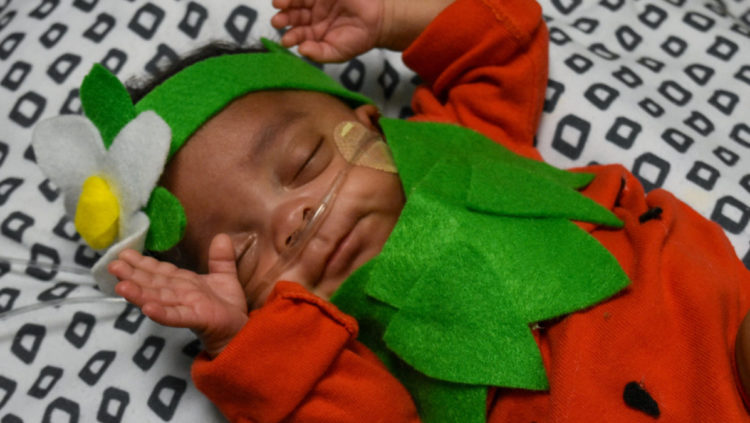Scientists Created An Artificial Womb That Could Save Preemies

The latest scientific advancement you need to know about: an artificial womb that could one day save premature babies’ lives. Though the details aren’t exactly nailed down quite yet, there’s no doubt that this could be a huge step forward in neonatal care.
Scientists have managed to keep premature lambs alive for four weeks in the artificial womb, also known as a “Biobag.” According to the article about the research in the journal Nature, the Biobag is a “completely closed system that minimizes amniotic fluid volumes and can be customized to more closely replicate the size and shape of the uterus.”
Though only sheep have been incubated within it as of now, the eventual hope of the team is that it can eventually be used for human babies.
A diagram published along with the details of the research in Nature shows the layout of the artificial womb and includes photos of a lamb’s growth within it:
Despite the enormous amount of medical intervention available in a neonatal ICU, infants born before 24 weeks of a pregnancy only have a 50 percent chance of survival. And, in a sick twist of irony, the medical technology used to keep these preemies alive can cause serious damage to their fragile systems.
For example, one of the biggest issues for premature babies is that their lungs are often underdeveloped. As a result, they need to be put on a ventilator which mechanically pushes oxygen into the lungs. But ventilators and extremely premature babies are a bad match.
“We know that even a few hours of that damages the lungs of a 24-week infant,” Dr. George Mychaliska, a pediatric and fetal surgeon at C.S. Mott Children’s Hospital, told STAT. “Our hands are tied, because in the absence of that, the baby would die. So we accept some lung damage to keep the baby alive.”
According to a report from The Atlantic, as many as 30,000 American babies are born before 24 weeks every year in America.
In the Biobag experiment, scientists used eight lamb fetuses that were between 105 to 115 days old. This level of development in the lamb is comparable to a human fetus that is 23 weeks old. As the lambs were incubated in the artificial womb, they developed brains and organs normally, which is very promising.
The researchers who are part of the study say the animal testing portion will be finished within two years. If the project is approved, the artificial wombs will be tested on human preemies within three to five years.
Hopefully, these artificial wombs will be part of an increased ability to save preemies.
You can watch a video of the artificial womb in action below:
Video of a fetal lamb kept alive inside an artificial womb, published by nature. https://t.co/T3uVEMptSP pic.twitter.com/gXaYu3gW0n
— Antonio Regalado (@antonioregalado) April 25, 2017
We have our fingers crossed, and look forward to seeing how these tests progress.






